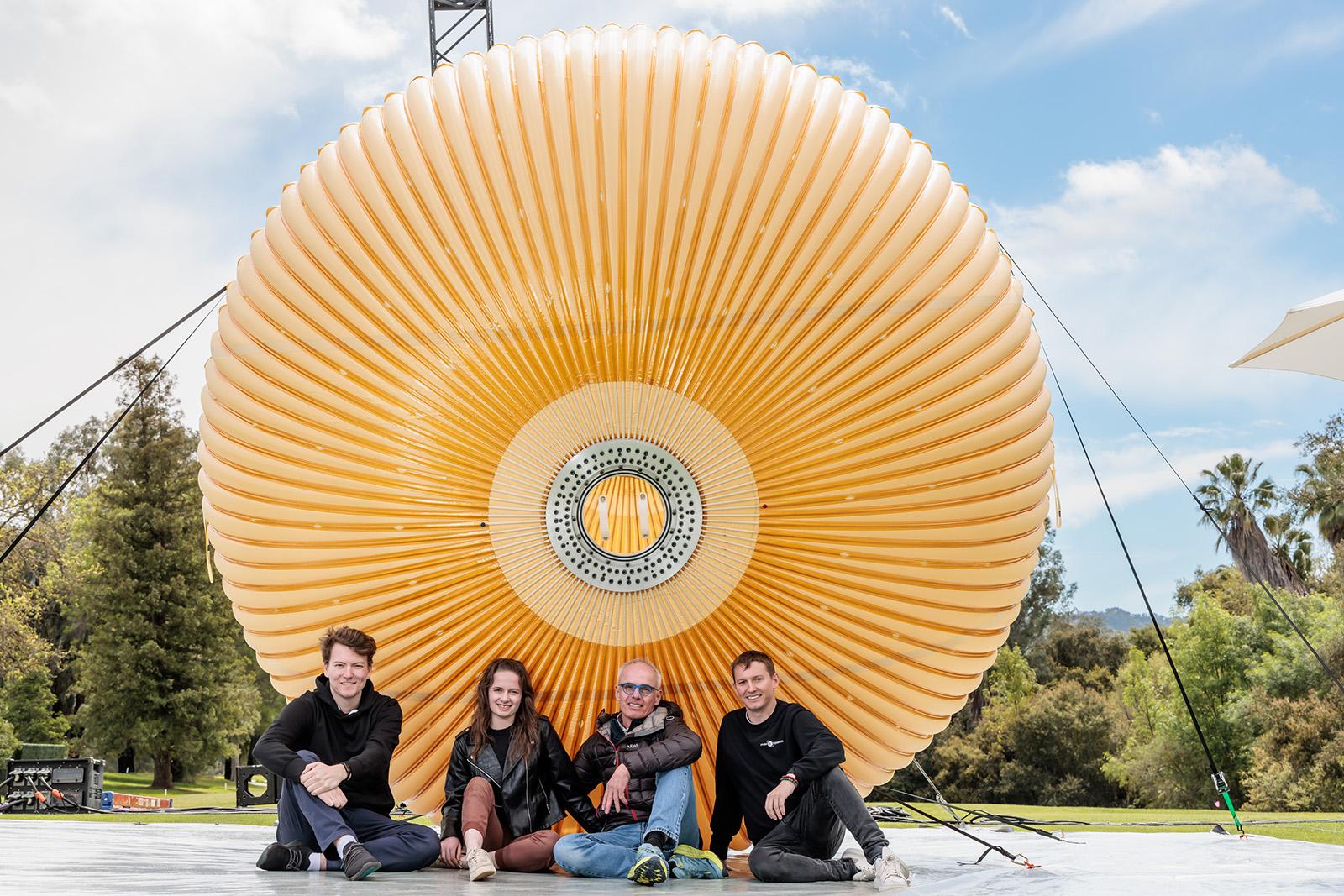
Max Space says its inflatable architecture can be easily scaled to larger sizes.
COLORADO SPRINGS—Startup Max Space has manifested an inflatable space station module on a SpaceX Falcon 9 rocket in 2026.
The inflatable module is 20 m3 in volume and is intended as a technology demonstrator for the company’s architecture, said Aaron Kemmer, a co-founder of Max Space, here at the Space Symposium April 9.
Kemmer was also a co-founder of Made In Space, a pioneering company that conducted manufacturing projects and experiments on the International Space Station (ISS). Made In Space was purchased by Redwire in 2020.
“The one thing that I learned is there’s not enough real estate in space [and that is] a really, really big limiter,” Kemmer says. “I think it’s the next big bottleneck after launch.”
Kemmer has teamed up with Maxim de Jong to co-found Max Space. De Jong helped Bigelow Aerospace design and fabricate the experimental Genesis I and II inflatable habitat pressure hulls, which launched in 2006 and 2007.
Max Space says its inflatable module design can be “scaled upwards in size indefinitely while maintaining structural predictability.” That allows the structure to grow in size, without having to requalify all parts of the module, de Jong says.
The company envisions a family of modules in the coming years, including pressurized volumes of 20 m3, 100 m3 and, by 2030, a 1,000-m3 structure that would rival the interior of the ISS. The structures could potentially “scale up to more than 10,000 m3 or megastructures [that] can be singularly launched using Starship and New Glenn once they’re online,” the startup says.
Max Space sees its inflatable structures as useful not only for building orbiting space stations in Earth orbit, but also habitats in cislunar space, on the Moon and Mars. The structures could be inhabited by crews and used for research, manufacturing and farming, as well as tourism, sports and entertainment.





